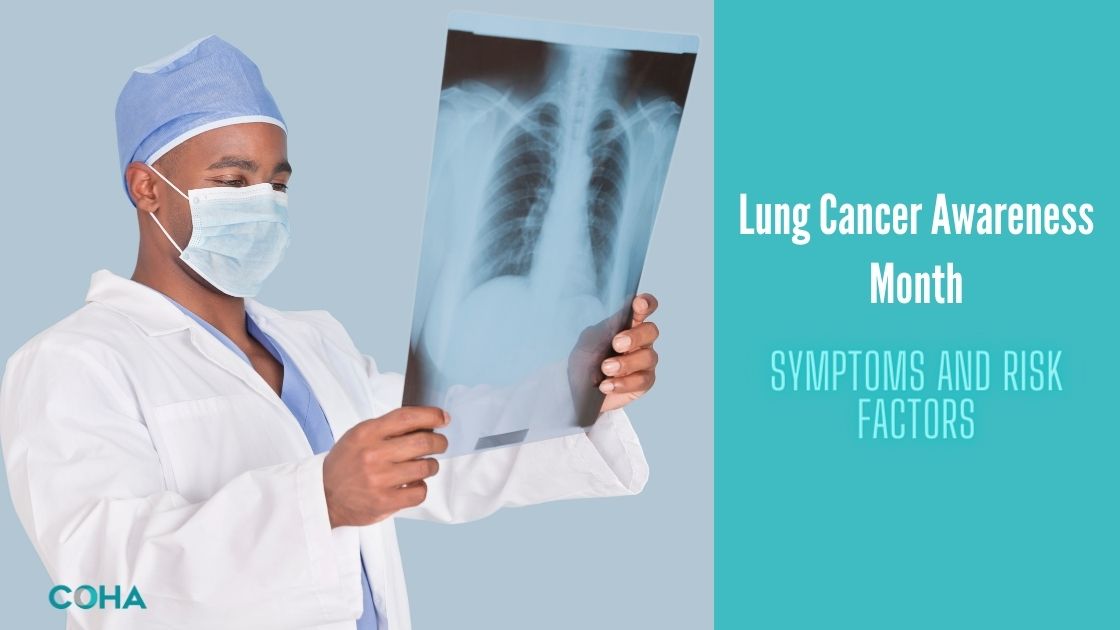


November is lung cancer awareness month, an ideal time to learn about the potential causes and risk factors of the disease. About 221,000 people are diagnosed with lung cancer every year, with 146,000 deaths yearly. Though lung cancer is the leading cause of cancer death, early diagnosis, and treatment can help cure the disease.
Lung cancer is caused by abnormal and uncontrollable cell growth in one or both lungs. These cells invade nearby tissues and form tumors. Lung cancer can affect any part of the respiratory system and further spread to lymph nodes and other parts of the body.
Lung cancer is classified into two types based on the appearance of the cancer cells under the microscope:
NSCLC is the uncontrolled growth of healthy cells in the lungs, forming a mass or lump. Non-small cell lung cancer types include adenocarcinoma, squamous cell carcinoma, and large cell carcinoma.
It occurs mostly in heavy smokers and begins in the lung’s hormone-producing cells or nerve cells. It is less common than non-small cell lung cancer.
These factors may increase your risk of developing lung cancer:
Lung cancer patients typically do not experience any symptoms in the early stages. The symptoms begin only when the disease has become more advanced. These include:
Follow these tips to reduce your risk for lung cancer:
At Chesapeake Oncology Hematology Associates (COHA), we have experienced oncologists, like Yudhishtra Markan, MD, Gayatri Nimmagadda, MD, Arun Bhandari, MD, and Melissa Vyfhuis, MD to guide you through your diagnosis and lung cancer treatment.
Our specialists will recommend the following lung cancer treatments depending on your overall health, preferences, and the type and stage of your cancer.
Surgery can be recommended if your cancer is confined to your lungs. Your surgeon will remove the cancerous tissue and a margin of healthy tissue around it.
Radiation therapy uses high-energy x-ray beams to kill cancer cells. It can be used for early-stage and more advanced stage lung cancer and can also be combined with chemotherapy treatments.
Chemotherapy uses oral or intravenous drugs to kill cancer cells. It can be used before surgery to shrink and easily remove cancer cells or destroy any remaining cancer cells after surgery. It is also used if surgery is not an option and often combined with radiation for more advanced lung cancers.
Immunotherapy stimulates your body's own immune system to improve its ability to fight cancer. It is recommended for people with advanced lung cancers and cancers that have spread to other organs in the body.
Contact or schedule an appointment with us today if you are looking for experienced oncologists to treat your lung cancer. We are committed to providing the treatment and care you need.